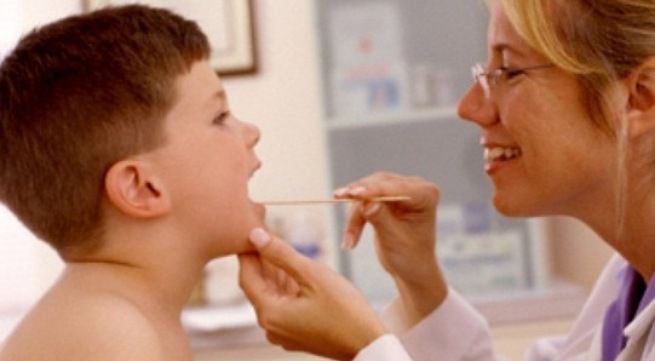Should a 3 year old have their tonsils removed?
When should a child have their tonsils removed? Is tonsillectomy dangerous or does it cause any complications later on? These are questions many parents have about tonsillectomy for children.
 |
Ask:My child was born on April 30, 2012, weighing 3.4 kg. Since 1.5 months, he has been sick often and has been taking all kinds of antibiotics. He has been injected with medicine for 6 months, mainly for respiratory and bronchial infections. He has been taking medicine almost every month, sometimes from one month to the next until now, he is still the same and often has sore throat and tonsillitis. He can get sick 2-3 times a month, sometimes he only recovers for 3-4 days and then gets sick again. I am very worried. I went to an ENT specialist and was advised to have his tonsils removed. The doctor told me if this is okay, my child is only 3 years old, is it safe to have it removed, will it affect him later on, my child is very naughty, is it okay to have it removed? I hope the doctor can advise me. Currently, my child weighs 16 kg and is 98 cm tall. I look forward to hearing from the doctor.
Reply:Hello, according to your information, your baby is currently 3 years old and weighs 16kg. For children after 6 months of age, the antibodies from the mother have run out and they begin to adapt to the surrounding environment. However, because the immune system is not fully developed until the age of 7, children are very susceptible to upper respiratory tract infections. For children of nursery age, it is very easy to get rhinopharyngitis, pharyngitis, tonsillitis... due to exposure to pathogens in the air and in food. Depending on the cause of the disease due to viruses or bacteria, the usual treatment time is from 3 to 10 days. Antibiotics must be used as prescribed or else it will cause drug resistance later.
In the case of your child, you need to see an ENT specialist to determine whether or not you have tonsillitis. For children under 5 years old, tonsillectomy is usually only performed in cases where the tonsils are large and overgrown, affecting eating or causing sleep apnea syndrome (the child snores, is startled, has apnea, is tired during the day, is drowsy, etc.). The remaining cases can be treated with internal medicine, prevented by eating hygienically, avoiding polluted living environments, etc.
Currently, tonsillectomy is performed under general anesthesia and is considered safe if performed at specialized ENT hospitals. After surgery, the child must follow a special diet (mainly soft, liquid, cold foods), avoiding strenuous exercise for 2 weeks to prevent complications of post-operative bleeding. After that, the child will return to normal activities and eating.
According to Giadinh.net






